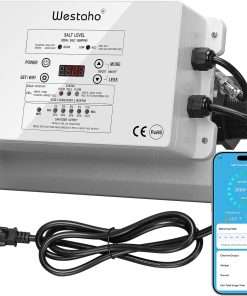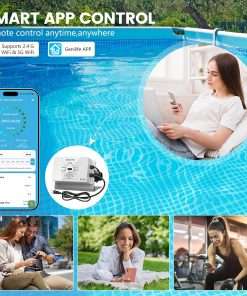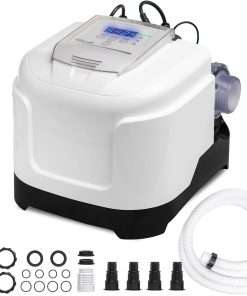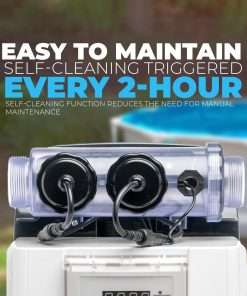What is the best way to chlorinate an above ground pool?
Chlorination is one of the most important steps in pool care. It helps to keep the water clean and safe for swimming. There are a variety of ways to chlorinate an above ground pool.
One method is to use a shock chlorinator. This machine uses high-pressure jets of chlorine to sanitize the pool quickly and easily. It’s a good choice for pools that are frequently used, like daycare centers or campsites.
Another option is to chlorinate the water using a water treatment system. These systems use filters and tanks to slowly release chlorine into the pool over time. This method is best for pools that are seldom used, or those that have low levels of contamination.
It’s important to choose the right chlorinating agent for your pool environment and usage. For example, if you live in an area with high levels of bacteria, you’ll need to use a more powerful chlorine solution than someone who lives in an area with less contamination.
Both methods of chlorination will work well on an above ground pool, but depending on your specific needs, one may be better suited than the other. Talk to your local dealer about which type of chlorination is best for your pool and usage habits
Do you need a chlorinator for above ground pool?
Chlorination is one of the most important steps in pool care. It helps to keep the water clean and safe for swimming. There are a variety of ways to chlorinate an above ground pool.
One method is to use a shock chlorinator. This machine uses high-pressure jets of chlorine to sanitize the pool quickly and easily. It’s a good choice for pools that are frequently used, like daycare centers or campsites.
Another option is to chlorinate the water using a water treatment system. These systems use filters and tanks to slowly release chlorine into the pool over time. This method is best for pools that are seldom used, or those that have low levels of contamination.
It’s important to choose the right chlorinating agent for your pool environment and usage. For example, if you live in an area with high levels of bacteria, you’ll need to use a more powerful chlorine solution than someone who lives in an area with less contamination.
Both methods of chlorination will work well on an above ground pool, but depending on your specific needs, one may be better suited than the other. Talk to your local dealer about which type of chlorination is best for your pool and usage habitsChlorination is one of the most important steps in pool care. It helps to keep the water clean and safe for swimming. There are a variety of ways to chlorinate an above ground pool.
One method is to use a shock chlorinator. This machine uses high-pressure jets of chlorine to sanitize the pool quickly and easily. It’s a good choice for pools that are frequently used, like daycare centers or campsites.
Another option is to chlorinate the water using a water treatment system. These systems use filters and tanks to slowly release chlorine into the pool over time. This method is best for pools that are seldom used, or those that have low levels of contamination.
It’s important to choose the right chlorinating agent for your pool environment and usage. For example, if you live in an area with high levels of bacteria, you’ll need to use a more powerful chlorine solution than someone who lives in an area with less contamination.
Both methods of chlorination will work well on an above ground pool, but depending on your specific needs, one may be better suited than the other. Talk to your local dealer about which type of chlorination is best for your pool and usage habits
How much does a chlorine generator cost?
A chlorine generator can be a very cost-effective way to sanitize areas and remove bacteria. Cost can vary depending on the model, but typically they run around $1,000-$2,000.
How much chlorine do I need for an above ground pool?
If you are looking to add chlorine to your pool, there are a few things to keep in mind. First, make sure the pool is properly balanced and filled with the correct amount of water before adding any chlorine. Second, determine how much chlorine to use based on the size of the pool and how often it will be used. Finally, use a test kit to verify that the chlorine level is effective.




















